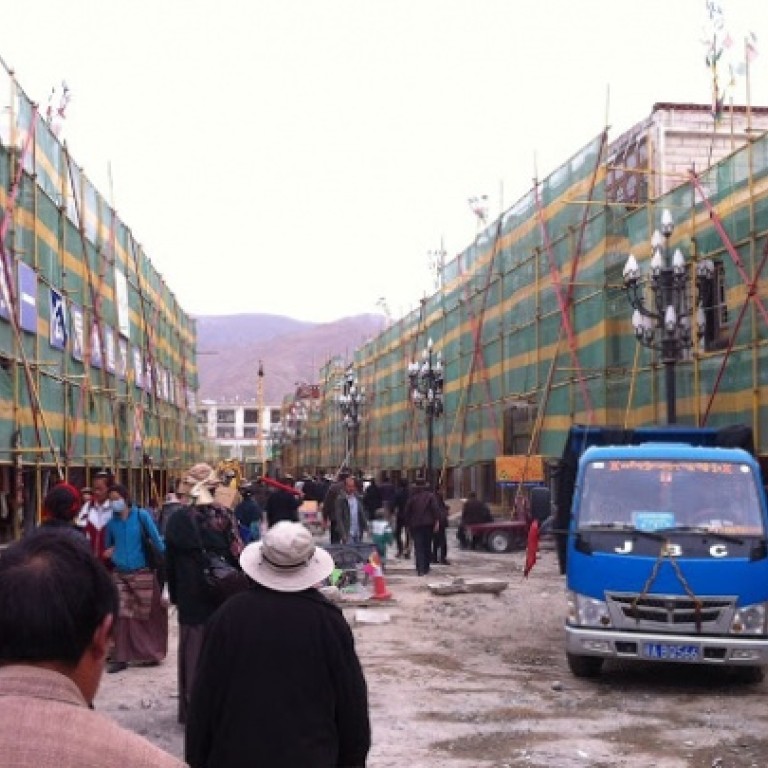
When Tibetan writer Tsering Woeser protested online this week against a commercial development in her hometown of Lhasa, thousands supported her by reposting her message and sharing their own thoughts on Tibet.
Most of the supporters said they had visited Tibet as tourists. Others said they had seen it only in pictures and movies. But few probably knew how difficult it has become for Woeser and other relocated Tibetans to go home to the autonomous region in western China.
When Woeser, who lives in Beijing, went back to visit her mother in October, she had to go to Jilin - where her hukou, or residential permit - is registered to get a travel document from local police. Only after police issued a letter stating Woeser had no crime history and a form was signed by an authority and stamped by the local precinct could she set off.
She could tolerate the procedures, but not what she saw at home.
Once home, Woeser said she was astonished by both the scale and the nature of commercial developments going on in the ancient part of the Tibetan capital.
The development project in question was Barkhor Mall, a shopping centre being built in the old town section of the city. The mall, once finished, would cover an area of 150,000 sq m and have more than 1,000 parking spaces, according to its developer.

“How much underground water will be drained to make room for the parking?” asked Woeser, evoking memories of the panic and discontent among many locals when underground water was drained to build a big mall a couple of years ago. Development companies took two years to drain the water.
“People worry about sinkholes and collapses, and other damages to the old town,” she wrote.
What worried Woeser more was what many described as a trend by the local government to turn Tibet into another “Lijiang old town", a historic town in Yunnan province now bustling with tourists. It’s constantly criticised for being overly commercialised and having lost its soul after many original residents moved out.
Lhasa locals worry that what had happened to Lijiang is now happening in Lhasa.
For instance, a plan revealed by the government said vendors and residents in the historic Barkhor area would be moved away from this historic and popular place for pilgrims and locals. Their houses and shops would be used to attract new businesses including restaurants, bars and art galleries.
Under the plan, old vendors would be moved to the new mall, and residents would be relocated to the suburbs, with each household receiving 20,000 yuan (HK$25,000) to 30,000 yuan in compensation.
“Lhasa doesn’t exist for only tourists,” Woeser told the South China Morning Post. “There are real people who live here and it’s also a religious place. You can’t just turn it into a Sanlitun village.” Sanlitun village is a high-end popular shopping destination in Beijing.
As much as locals fear that development will change Lhasa’s architecture, culture and religion, they were also scared of retaliation and do not dare speak out against the plans, said Woeser.
While most international media have given their attention to the recent cases of immolations by Tibetan monks, Woeser argued that a more imminent disaster in Lhasa has been largely ignored.
She decided to make her plea for support on social media, knowing it would mean possible retaliation from the government.
“I therefore plead to Unesco and other international organisations, Tibetan scholars and experts, and all of you, please stop this horrible modernisation from committing unforgettable crimes to Lhasa's old town environment, culture and architecture,” she wrote.
Woeser's letter received thousands of comments and reposts from supporters on Weibo before it was taken down by censors on Monday.
